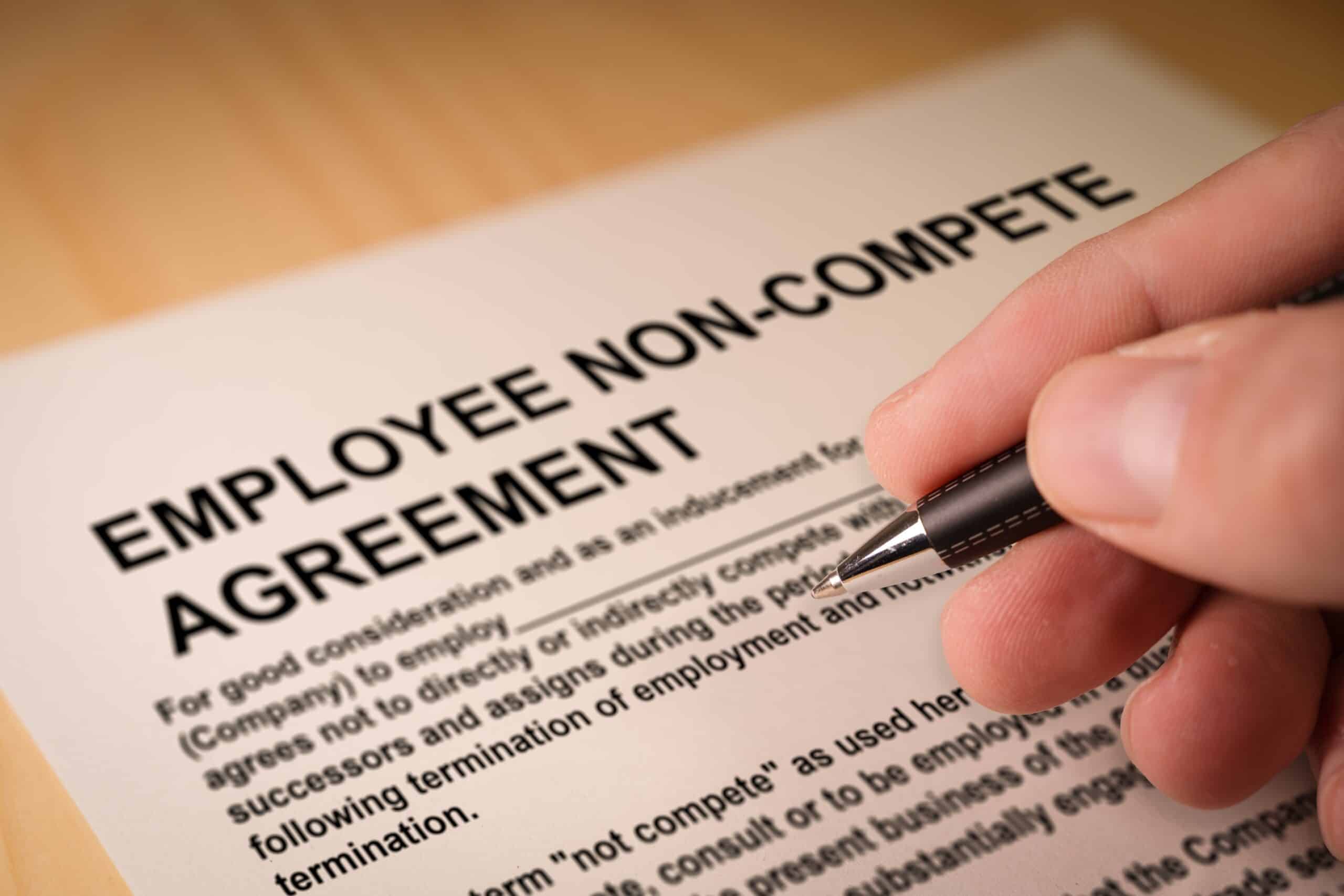When Can a Non-Compete Agreement Stop You From Starting a New Job?
You’ve landed your dream job. The offer letter is sitting in your inbox, the salary is right, and you’re ready to give notice. But there’s one problem: the non-compete agreement you signed at your current company.
Non-compete agreements are contractual clauses designed to protect an employer’s business interests by restricting where and how you can work after leaving the company. While these agreements serve a legitimate purpose, they can also create significant roadblocks when you’re ready to take the next step in your career.
Understanding how non-compete agreements work and when they might prevent you from accepting a new job is crucial for protecting your professional future. The executive compensation attorneys at Barrett & Farahany will explore the different types of restrictions you might face and what you can do about them.
What Is a Non-Compete Agreement?
A non-compete agreement is a legal contract between you and your current or previous employer that limits your ability to work for competing businesses or start a competing venture after your employment is over. These agreements typically include specific restrictions based on time, geography, industry, and role.
Employers use non-competes to safeguard proprietary information, client relationships, and competitive advantages. However, the enforceability of these agreements varies significantly by state, with some jurisdictions imposing strict limitations on what employers can restrict.
6 Common Types of Non-Compete Restrictions
Non-compete agreements come in several forms, each targeting different aspects of your professional activities. Here are the most common restrictions you might encounter:
1. Industry and Role Restrictions
These clauses prevent you from working in similar positions or industries that directly compete with your former employer. For instance, a meteorologist might be barred from working at a rival television station in the same market to prevent viewer migration.
Similarly, a software developer could be restricted from taking a role that duplicates their previous responsibilities at a competing tech company, particularly if that work involves proprietary algorithms or intellectual property.
2. Geographic Restrictions
Geographic limitations confine where you can work after leaving your employer. An agreement might prohibit you from accepting employment within a specific radius — such as 50 or 100 miles — from your current office location. These restrictions are designed to protect the employer’s market presence in a defined area.
3. Time-Based Restrictions
Every non-compete agreement includes a duration during which the restrictions apply. This period typically ranges from six months to two years after your last day of employment. For example, you might be forbidden from working for a competitor for one year following your departure.
4. Client-Based Restrictions (Non-Solicitation)
Also known as non-solicitation clauses, these provisions prevent you from contacting or doing business with clients you served while employed. This restriction can be particularly limiting if you work in sales, consulting, or any role where client relationships are central to your value, but it is also one of the stronger aspects of a non-compete to enforce.
5. Specific Named Competitors
Some agreements explicitly list companies you cannot work for during the restricted period. For example, a broadcast journalist might be forbidden from joining any of several named rival stations in the same media market.
6. Business Ownership Restrictions
Certain non-competes go further by preventing you from starting your own competing business within a designated geographic area for a specific timeframe. This can significantly limit entrepreneurial opportunities in your field of expertise.
How to Handle a Non-Compete Agreement
If you’re facing a non-compete that threatens your career mobility, you’re not without options. Here’s what you can do:
Step 1: Review the Agreement Carefully
Start by reading your non-compete agreement thoroughly. Pay close attention to the specific terms, including the duration of restrictions, geographic scope, prohibited activities, and any named competitors. Understanding exactly what you’re bound by is the first step in determining your options.
Step 2: Consult an Attorney
Employment law varies significantly from state to state, and some states heavily restrict or even ban certain types of non-compete agreements. An experienced employment lawyer can evaluate whether your agreement is enforceable under your state’s laws and advise you on potential challenges or workarounds.
Step 3: Negotiate the Terms
If you haven’t yet signed a non-compete, you may have room to negotiate. Consider requesting modifications such as reducing the time frame, narrowing the geographic area, limiting the list of restricted roles, or removing specific named competitors. Employers are sometimes willing to adjust terms, especially if you’re a valuable candidate.
Step 4: Explore Alternative Opportunities
If your non-compete is enforceable and negotiations fail, you might need to consider roles outside the restricted industry or location. Alternatively, you could wait until the restriction period expires before making your move, or explore starting a business in a different area or sector that doesn’t conflict with the agreement.
Protecting Your Career While Respecting Agreements
Currently, the FTC is fighting to ban non-competes, but this hasn’t yet gone through. Until then, non-compete agreements can create genuine obstacles when you’re ready to advance your career or pursue new opportunities. While these contracts serve legitimate business purposes, they shouldn’t unfairly trap you in a position or prevent you from earning a living in your chosen field.
The key is understanding your rights and obligations before a conflict arises. Whether you’re reviewing a non-compete before signing, planning a career move, or facing a potential violation, professional legal guidance can make all the difference in protecting your interests.
Don’t let uncertainty about a non-compete agreement derail your career plans. Contact our employment law attorneys in Alabama, Georgia, Illinois, and North Carolina today to discuss your situation and explore your options. We can help you understand your rights and navigate these complex agreements with confidence.


